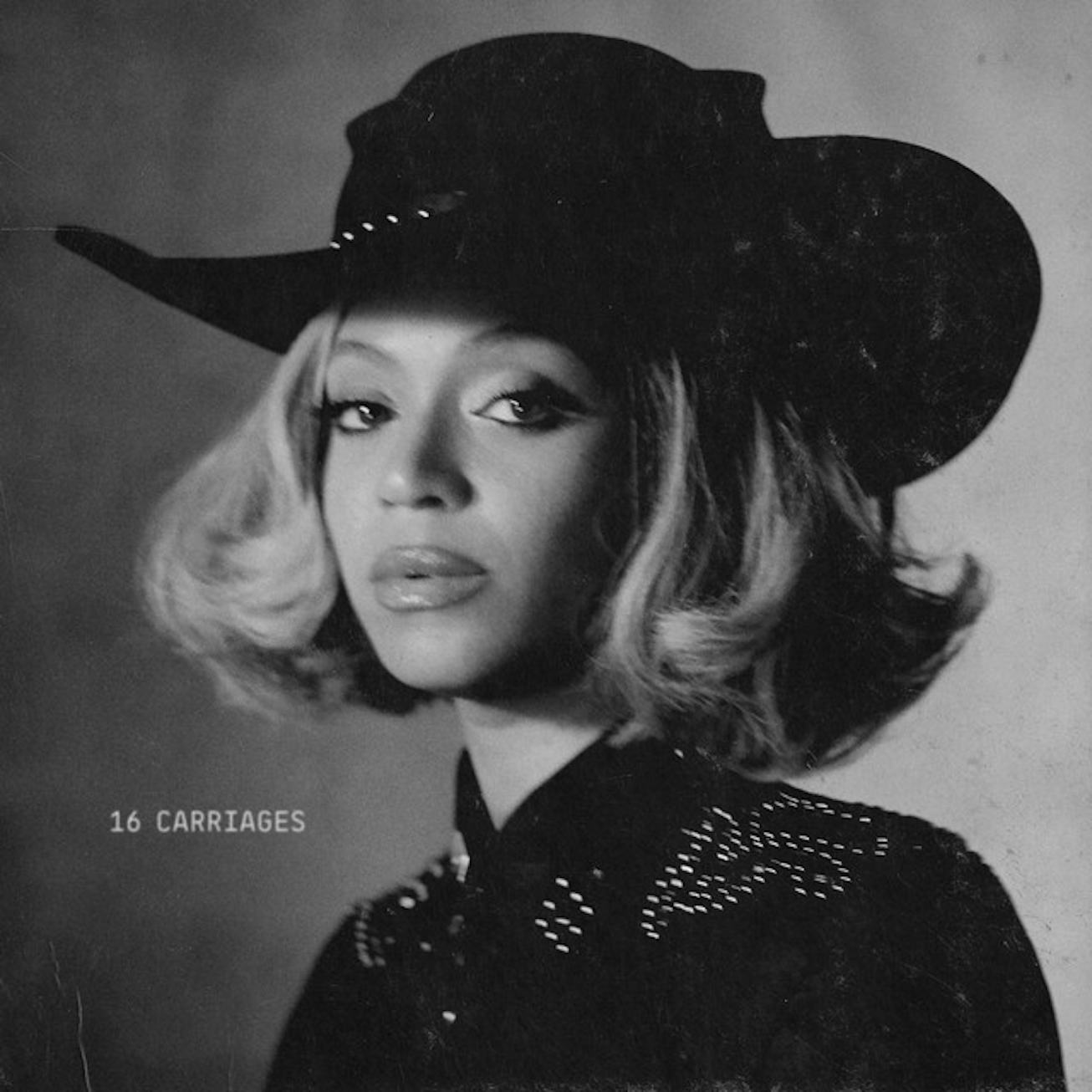
Entertainment
Breaking Down 6 Key Lyrics From Beyoncé's Autobiographical “16 Carriages”
The pop star is looking back at her Girl’s Tyme and Destiny’s Child days.
It turns out Beyoncé’s cowboy-themed 2024 Grammys outfit was more than just turning out another look: The pop star has actually gone country.
On Feb. 11, she surprise-announced her next album while dropping two new songs — “16 Carriages” and “Texas Hold ‘Em” (in the middle of the 2024 Super Bowl, no less) — signaling that guitars and bluesy anthems will be the next genre she’ll be mining. It seems Lana Del Rey was right — country is pop music’s next frontier.
In the spirit of the genre, these new tracks are also some of the most personal Beyoncé has ever released, highly visceral snapshots of life, living, and overcoming in the dust-hewn South. Of the two singles, “16 Carriages” feels especially personally revealing, seemingly touching on her childhood as a budding young girl trying to make it in show biz while also overcoming familial trauma. Considering Queen Bey’s extreme privacy these days, it’s a rare moment of vulnerability from the singer, one that’s already resonating deeply with her fans.
Below, we break down the key lyrics from “16 Carriages” and explain what new sides of the pop star they uncover.
“Sixteen carriages drivin' away/ While I watch them ride with my dreams away”
Sixteen carriages is the central motif of the new song, but what exactly are the 16 carriages? Unlike Taylor Swift, Beyoncé doesn’t really dabble in numerology so there isn’t a clear reference to point to. However, fans have theories, and some online believe the number could be a reference to her age when Destiny’s Child officially debuted in 1997 (she would’ve been around 16), or to the many times Beyoncé has been nominated for a Big Four Grammys category and didn’t win — hence the carriages “drivin’ away” with her dreams. But the math doesn’t exactly add up with this theory, and we’d like to think Bey is above needing validation from the Grammys.
“At 15, the innocence was gone astray/ Had to leave my home at an early age/ I saw Mama prayin', I saw Daddy grind/ All my tender problems, had to leave behind”
Although Destiny’s Child officially debuted in 1997 when they released their first song “No No No,” Columbia Records officially signed Destiny’s Child in 1996, when Bey was 15. At the time, she was still being managed by her father, Mathew Knowles, about whom she was quoted saying, “I grew up watching both he and my mother manage and own their own businesses. They were hardworking entrepreneurs, and I will continue to follow in their footsteps.”
“It's been umpteen summers, and I'm not in my bed/ On the back of the bus and a bunk with the band/ Goin' so hard, gotta choose myself/ Undеrpaid and overwhelmed”
Beyoncé being a Virgo is just one facet of her unparalleled work ethic; the other is the fact that she’s been on the road and living the punishing tour life since she was a child, starting with her days in the preteen group Girl’s Tyme, and later with Destiny’s Child.
“It's been 38 summers, and I'm not in my bed/ On the back of the bus and a bunk with the band/ Goin' so hard, now I miss my kids/ Overworked and overwhelmed”
There are a few ways to interpret this lyric, one being that she wrote this song after she turned 38 in September 2019. Though considering lockdown happened just a few months later, the timing doesn’t exactly align for her to be “on the back of the bus.”
The other interpretation involves some loose artistic license and the understanding that the “Formation” singer has more or less been grinding as an artist for the greater part of nearly four decades. Whereas in the past she was “underpaid and overwhelmed,” she’s now “overworked and overwhelmed.”
“At 15, the innocence was gone astray/ Had to take care of home at an early age/ I saw Mama cryin’, I saw Daddy lyin’”
Beyoncé and her father have always had a complicated relationship. As mentioned above, he was a key figure in her rise and success as a child star, but, there was turmoil behind the scenes. In 2011, Mathew Knowles and Tina Knowles officially divorced after 31 years of marriage when it was discovered that Mathew had “fathered a love child,” per the Daily Mail.
Later, Beyoncé would seemingly reference her father’s infidelity on albums like Lemonade so much so that he was asked about it in interviews, though he largely chose not to respond.
“Had to sacrifice and leave my fears behind/ The legacy, if it's the last thing I do/ You'll remember me 'cause we got somethin' to prove”
As Bey’s grown older, her legacy has become a major theme in her music whether she’s declaring herself to be “one of one” on “Alien Superstar,” or more introspectively making her case on “16 Carriages.” If Renaissance was this thesis expressed through exuberant dance music, then we can only imagine the upcoming album will serve as the emotional arc of this new era.